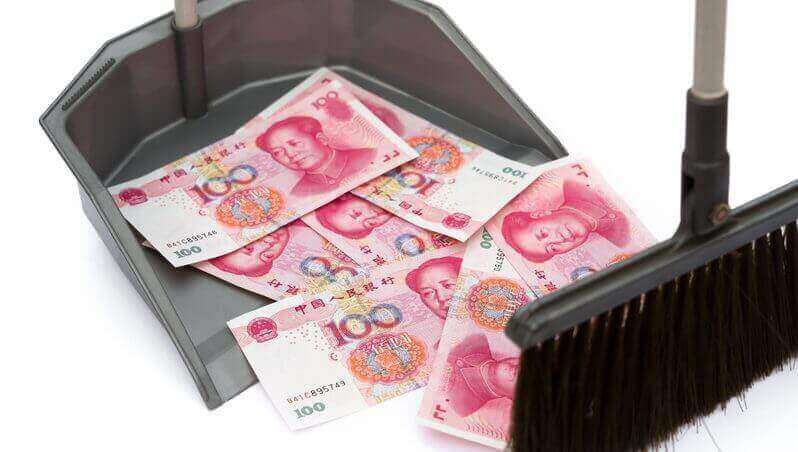Blog
If the Greece crisis didn’t make you want to buy gold, then the China devaluation should
Greece Crisis
Greece’s debt woes have made financial headlines on and off for the past few years. So much so, that most readers have become immune to the the Greece crisis headlines as the possible implosion of the Euro simply hasn’t happened…yet! For those holding gold, the Greek irritation has proved to be nothing more than a disappointment. As a safe haven asset, investors would expect the gold price to rise with the concerns in Europe, but the price has struggled now for the past 18 months.
But just when we thought that gold may have lost its safe haven tag, a real problem has come along and everyone should be worried this time!
It’s well known that some of the biggest events in world history start off without fanfare. It is only with hindsight that we look back to realise we saw the birth of the new era. In the past week, while we focussed on stories about a refugee crisis and a labour leadership battle, China quietly devalued its currency.
Take our FREE test to determine how exposed you are to a market downturn
Major concern
When the Chinese cut the value of the Yuan for the second consecutive day,


the world’s economies reacted with shock, sending stock markets plummeting. One analyst at bank Societe Generale said “This is the start of something big, something ugly”. The significance of this move is two-fold. Firstly Chinese demand plays a major role in almost every economy around the world. For instance China are the world’s biggest consumer of smartphones, so Apple saw its share price immediately fall by 5% on the news. Secondly, sentiment and confidence will contribute to its impact on markets. China has been championed as an economic juggernaut over the past decade. While most economies have struggled to overcome the credit crunch, China has gone from strength to strength. Disappointing recent Chinese GDP figures have been ignored by the masses, feeling comfort that China is impregnable. Rumours of a possible Chinese housing market crash have been followed by the Yuan devaluation, now affirming the slowdown. The psychological effect of this could spook markets for months to come. Chinese demand has managed to smooth over the cracks in most economies – one notable example being huge Chinese investment in the UK property market. If such money subsides, we may well see these cracks reopen and markets tumble.
Ignore the Greece crisis if you wish, but don’t turn a blind eye to China
The significance of the Chinese economy can’t be overstated. It’s transformation from a vast unknown communist nation to supplying goods in almost all our shops is remarkable. Greece is a small nation on the global stage with a population of 11 million producing a mere 0.38% of the globe’s output. This perhaps explains to some extent how many nations feel they can overcome the Greece crisis, albeit with some heavy losses. China on the other hand has a population of 1.4billion and contributes 15% of the world’s production, competing with the US as the leading economy of the world. While America has been chalking up vast debts to survive, China has slowly been buying up stakes in major companies around the world. While annual growth figures have consistently surpassed 7%, there are now signs of a slowdown with stalling Chinese house prices, low productivity and half finished building projects. The devaluation confirms the panic beneath the surface.
Nature of china’s appeal leaves it vulnerable
One of the problems China faces lies within its very makeup. China doesn’t offer the innovation of Britain or the reputation for quality and reliability of Germany. Instead it relies on copying products at a fraction of the price. It competes on being a low cost option and many foreign companies have outsourced their manufacturing to China to capitalise on this. Clearly as their economy and wages grow, their export prices will rise. In recent months the financial saving of moving production to China for UK firms has shrunk considerably – clearly the factor being addressed by devaluing their currency.
This isn’t the only time that China has tried to intervene when its very fabric causes its own problems. Gambling has always played a significant role in Chinese culture which has been exploited by encouraging the middle classes to invest in equity markets on a margin basis. This means that they’re able to take huge risks on stocks without the need for having the actual money upfront. Then they just pay out or receive the market movement, or margin. This has fuelled dramatic rises in Chinese stocks but the boom has now stalled. The Government has panicked, trying to prevent the problem manifesting by intervening in markets. In recent months they’ve manipulated economic data, frozen trading in 2,000 shares and finally pumped emergency money into the financial markets. All have been criticized by the International Monetary Fund (IMF).
Global currency war
The devaluation of the Yuan is a clear attempt to reduce the cost of Chinese exports and spur growth but it will be a continuing challenge. We may then see other Asian exporters cutting the value of their currencies to compete with China. In turn, British and European exports will become super expensive to Asia, impacting demand for our export business in an already struggling Europe. The US has criticised China for starting a global currency war just when talks of recoveries were growing. The Chinese recently sold off a large amount of its gold holdings to raise funds, sending the gold price falling 5%. However, the price has since recovered this lost ground on the back of their market intervention.
History has told us it’s not always what you know that can hurt you. The relative youth of China’s capitalism means no-one’s sure what they will try next. One thing is for sure, China is much more significant in the global economy than the Greece crisis. If the party really is coming to an end, it will be a rocky path ahead for investments. So it’s best you plan for the unexpected and hedge your portfolio now as history may already have been made.



